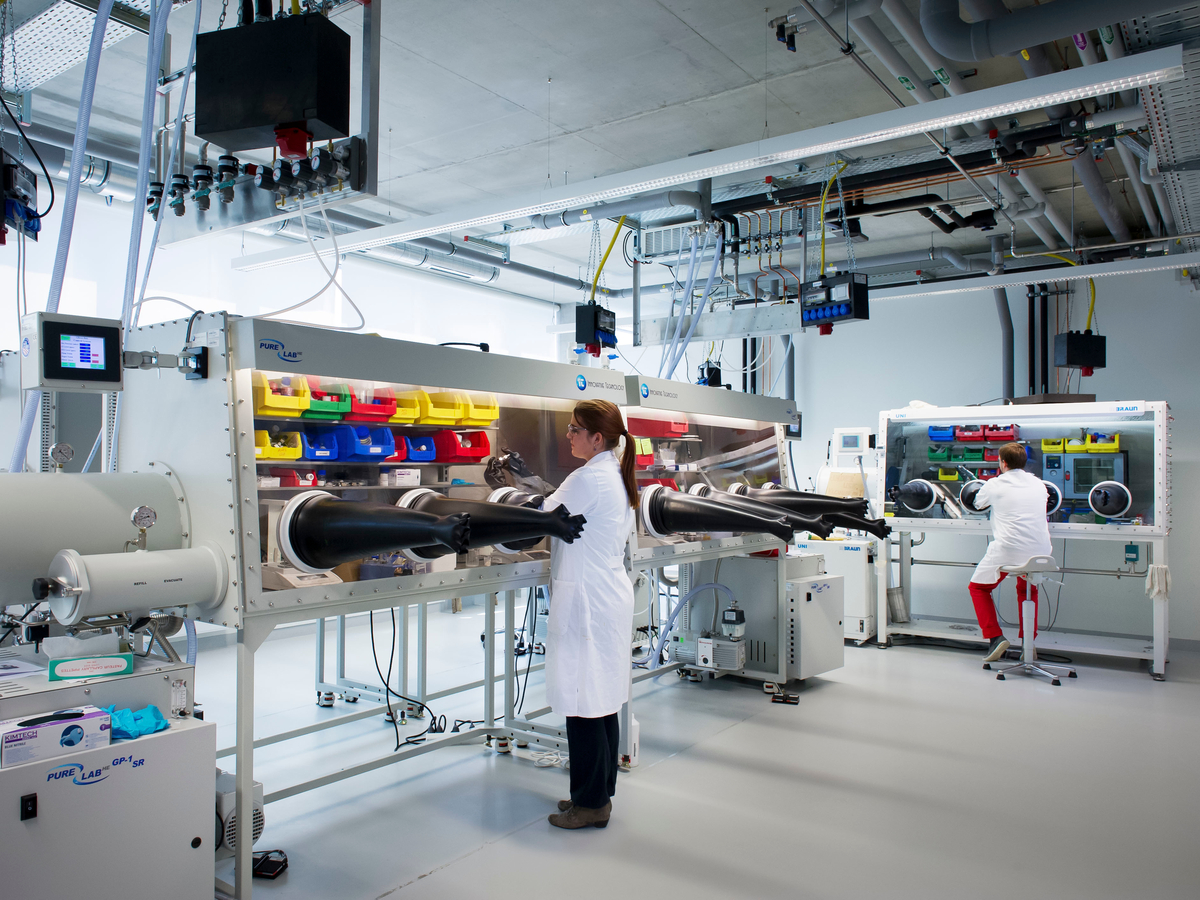Sustainable batteries of tomorrow
The Post Lithium Storage (POLiS) Cluster selected in the Federal Excellence Strategy started work. For the next seven years, scientists at the Karlsruhe Institute of Technology (KIT) and the Ulm University will explore batteries completely free of lithium or cobalt. The background: conventional lithium-ion batteries have almost reached their maximum storage capacity, and the mining of their components – such as cobalt, graphite, and lithium – involve political, environmental, and economic risks.
An important focus of POLiS is on the topic of sustainability, for which ITAS is responsible. Researchers at the institute support the Cluster in considering ecological, economic, and social aspects from the beginning. For example, the recyclability of future material compositions, the conditions of raw materials production, as well as the energy costs of production processes need to be examined intensively. Using the “Multi-Criteria Decision Analysis (MCDA)”, the researchers want to identify the most promising materials or cell designs for further development from a sustainability perspective.
In the course of research and development, the ITAS team, headed by Marcel Weil, will increasingly involve external stakeholders, such as potential users or industry representatives. Methodologically, the researchers focus on the further development of prospective sustainability analysis that takes into account not only life cycle assessment but also social impacts and economic costs.
In addition to KIT and Ulm University, which bundled their battery activities at the Helmholtz Institute Ulm (HIU), the Center for Solar Energy and Hydrogen Research Baden-Württemberg (ZSW) and the Justus Liebig University Giessen are also involved in POLiS. (25.03.2019)
Further information:
- Report (German) on the first general meeting of the Cluster at the Helmholtz Institute Ulm (HIU)
- KIT press release on successful Clusters of Excellence


